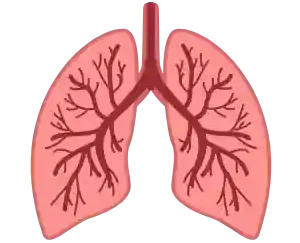Evaluate lung capacity and endurance with our Athletics Lungs Test. Track respiratory health and optimize your athletic performance today.
Disclaimer: Do not use this test if you have breathing problems such as asthma and the flu. Also, if you drink alcohol or smoke in everyday life, please consult a medical professional.
Athletics Lungs Test
Test your lungs with this online inspection tool
Hold your breath to measure your lung capacity

Leaderboard
| # | Time (s) |
|---|---|
| 1 | 0.0 |
| 2 | 0.0 |
| 3 | 0.0 |
| 4 | 0.0 |
What is the Athletics Lungs Test?
The Athletics Lungs Test is a simple and effective tool used by athletes to measure lung capacity and respiratory performance. It helps assess how efficiently your lungs can supply oxygen during physical activities like running, swimming, or cycling. This test is often used as a benchmark to track improvements in respiratory fitness over time.
Who can take the Athletics Lungs Test?
This test is suitable for anyone interested in evaluating their lung capacity, especially athletes and fitness enthusiasts. Whether you are a beginner, a seasoned athlete, or someone simply curious about your lung performance, the test provides valuable insights. However, it’s always advisable to consult with a professional if you have underlying respiratory concerns.
Why is lung capacity important for athletic performance?
Lung capacity plays a crucial role in athletic performance because it determines how much oxygen your body can take in during exercise. The more oxygen your lungs can supply, the better your muscles perform during prolonged physical activities. Enhancing lung capacity can improve endurance, reduce fatigue, and boost overall performance.
How is the Athletics Lungs Test conducted?
The Athletics Lungs Test is typically conducted using a simple device like a spirometer or through specific breathing exercises. Some versions involve holding your breath for as long as possible, measuring exhalation volume, or performing breathing endurance tasks. Detailed instructions are usually provided to ensure consistent and accurate results.
Can this test help improve my athletic performance?
Yes, the Athletics Lungs Test provides data that can help tailor your training program. By understanding your lung capacity, you can focus on exercises that improve respiratory strength, such as cardio workouts or breathing techniques. Over time, these efforts can enhance stamina and endurance.
How often should I take the Athletics Lungs Test?
The frequency depends on your goals and training schedule. Many athletes take the test monthly or quarterly to track progress and make adjustments to their fitness routines. Regular testing ensures that you’re monitoring improvements effectively.
Are there any special tools required for the Athletics Lungs Test?
While some versions of the test can be done using basic tools like a timer, others may require specific devices such as spirometers. If you don’t have access to specialized equipment, many free resources and apps can guide you through alternative methods.
What factors can affect the results of the Athletics Lungs Test?
Several factors can influence the results, including hydration levels, overall fitness, recent physical activity, and even environmental conditions like altitude or air quality. To ensure consistent results, perform the test under similar conditions each time.
Can breathing exercises improve my test results?
Absolutely! Incorporating breathing exercises like diaphragmatic breathing, pursed-lip breathing, or yoga can strengthen your lungs over time. Consistency is key, so adding these exercises to your daily routine can significantly enhance your lung capacity and test results.
Is the Athletics Lungs Test the same as a medical lung function test?
No, the Athletics Lungs Test is designed for fitness tracking and performance insights, not for diagnosing medical conditions. It’s a practical tool for athletes and fitness enthusiasts, whereas medical lung function tests require specialized equipment and professional evaluation.
